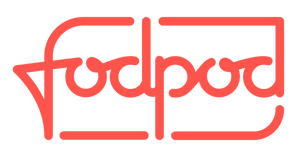
I'm Coeliac - now what?
First of all, well done for going and getting tested. Knowing what the problem is is a huge step towards treating it! As you’ve probably already found though, there’s a huge amount of information out there. Here’s the essentials that you need to set you confidently on your new path.
The basics
Gluten is a protein that coeliacs respond badly to, and eating it causes damage to the lining of the bowels in addition to a host of other unpleasant symptoms. If you have been diagnosed as coeliac the plan is very simple: eliminate gluten from your diet.
Be prepared for your new diet to take a bit of getting used to - all major dietary changes take time and practice. But once you’ve got the hang of it you’ll be back to feeling like yourself in no time.
How do I know if something contains gluten or not?
Gluten is found in wheat, barley, and rye. Anything containing these grains will contain gluten so should be avoided by people with coeliac disease. You must get used to reading the labels on absolutely everything – you would be surprised where wheat turns up as an additive!
By law any food that is labelled as gluten free is required to have been tested and fall below the 20 parts per million threshold. Labelling is voluntary. In the UK, Coeliac UK operates a gluten free testing and certification to help you shop with confidence. Look for the crossed grain symbol.
|
Coeliac.org.uk
|
GFCO.org |
There's an app for that
To help you identify products while out and about, you might like to download one or both of Coeliac UK's apps, Gluten Free on the Move (for restaurants) and Gluten Free Food Checker (for scanning barcodes).
So I just check that the ingredients are free from gluten?
Well, that's part of it, but gluten may also be introduced by cross contamination. This is especially relevant when eating out, or if anyone in your household consumes products containing gluten.
Cross contamination is when food containing gluten leaves traces of gluten on the equipment with which it was prepared; these traces of gluten then enter any food subsequently prepared with the same equipment. This can happen both at home and in commercial and industrial environments, and is why some products carry disclaimers such as "may contain traces of gluten" and may not be suitable for those on a gluten free diet, even though none of the ingredients themselves contain gluten.
Can I be cured of coeliac?
Unfortunately no, following a strict gluten free diet is the only treatment option available.
But don’t let this get you down! The range of gluten free options is better now than it has ever been and is always increasing. Public awareness of the condition is improving too. When shopping on Fodpod remember to check the gluten free filter option to help you find products that are suitable for you, and always read the label.
Do you grow out of coeliac?
This is a common myth. Coeliac disease is a genetic auto-immune disease so if you have it then it's with you for life. Following a strict gluten free diet is the only treatment option available.
I'm supposed to be gluten free but I accidentally ate gluten. What will happen?
Any major dietary change will take time to get used to and mistakes do happen, especially when it's all new to you, so the first thing is not to panic. If you have accidentally eaten something containing gluten then you will just have to wait for the symptoms to pass. Symptoms may set in within a few hours of eating gluten and may persist for up to several days, though this may depend on a range of factors.
That said, eating even small amounts of gluten should be avoided if you are coeliac, as the more times you eat gluten the more likely it becomes that long term damage will be done to the lining of the bowel. The most important thing is to try your best to eliminate your exposure to gluten. It gets easier with practice! It's a good idea to speak to your doctor or a registered dietician for help with managing your condition, especially when you’re starting out.
Where can I learn more?
For more information or for help and support with coeliac disease be sure to speak to your doctor or a registered dietician. You may also like to read the following resources:
Coeliac.org.uk
Isitcoeliacdisease.org.uk - screening questionnaire
NHS - Coeliac disease
Beyond Celiac


